Back
Moonshot Mafia #16 | Crypto-Fintech Lab at HKUST: Hong Kong’s Latest Crypto Policy Unveiled and Discussed
Fireside Chats
By Moonshot Commons
Jul 3,202313 min read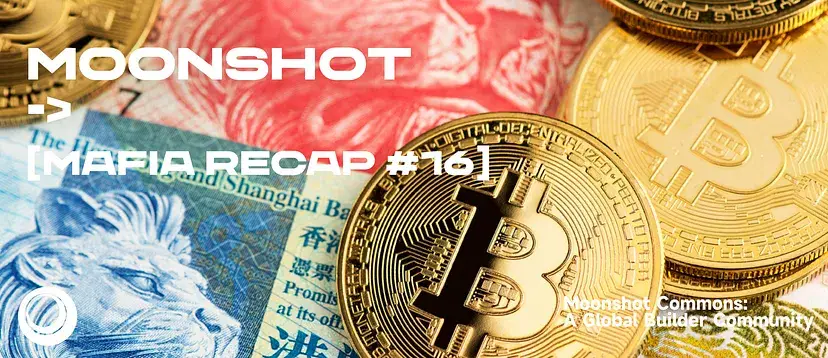
“As one of the rising stars of the crypto world, Crypto-Fintech Lab is an organization based in HKUST and aims to provide solutions to current financial problems. With over 30 scholars and students, the lab focuses on crypto-asset trading, DeFi Projects, and blockchain education. They welcome talents from all over the world to join them, and together they will define the future of finance together. (Visit Crypto-Fintech Lab for more information).”
On October 31, 2022, Hong Kong issued the “Virtual Asset Development Policy Declaration” and at the same time launched three experimental projects: issuing NFT for Hong Kong Fintech Week in 2022, releasing government tokenized green bonds, and launching digital Hong Kong dollars. This policy declaration introduces virtual assets with an open attitude, connects the crypto world, and vigorously develops financial technology. It aims to help Hong Kong become a global meta-asset center in the future.
At Moonshot Commons’ Web3 Fireside Chat #16, we invited Professor Chen Kayou from the Crypto-Fintech Lab of the Hong Kong University of Science and Technology (HKUST) to share his insights on the release of Hong Kong’s “Virtual Asset Development Policy Declaration”. We discussed how Generation Z would develop new technologies in the wave of crypto world entrepreneurship to bring positive changes to the real world.
Professor Kani Chen is the laboratory director of the Crypto-Fintech Lab at the Hong Kong University of Science and Technology. The scholars and students of the Crypto-Fintech Lab focus on research related to crypto assets and actively invest in high-potential student-led entrepreneurial projects. Their goal is to use crypto financial technology to further solve real-world problems.
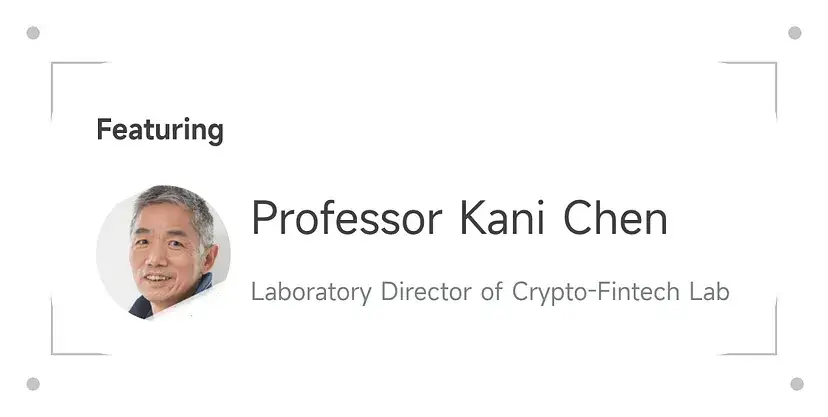
Key Takeaways:
1.Hong Kong’s declaration on the development of virtual assets is showing positive progress, but the specific details and implementation timeline are still pending.
2.The current entrepreneurial atmosphere in Hong Kong universities is vibrant, with many students working on projects related to Web3, blockchain, and the Metaverse.
3.The development of AI and Web3 is expected to become more closely tied together in the near future.
4.Teams with a strong skill set and work ethic are likelier to succeed in their entrepreneurial endeavors.
5.The MetaHKUST project is a great example of how virtual and real-world campuses can be combined to create a diverse and engaging learning environment.
6.Young people should not be afraid to try new things, even if the results are not perfect — the process of entrepreneurship and innovation is ultimately about training and cultivating people.

“A thousand miles begins with a single step.”

Moonshot Commons:
We are very glad to have this opportunity to interview you, Professor Chen. Can you share your insights on the opportunities and challenges of the “Virtual Asset Development Policy Declaration” based on your personal experience?
Professor Chen:
HKUST itself has a strong entrepreneurial atmosphere, with many entrepreneurial teams in the field of Web3 and blockchain.
There are already many ongoing projects in our Crypto-Fintech Lab, some have been successfully implemented, and some are still in progress. I also recently found out that we have many teams on campus working on metaverse and blockchain-related projects in addition to the projects of Crypto-Fintech Lab members. Therefore, the entrepreneurial atmosphere in our cryptocurrency market has always been good.
We are very excited about the recent developments in Hong Kong’s Web3 policy. Although I haven’t seen any specific changes, I can feel the momentum forward. Some Web3 developers or students in Mainland China have asked whether they can work in Hong Kong or study for a doctorate/master’s degree here. The increasing attention of these Web3 talents to Hong Kong should be related to the recent changes in Hong Kong’s Web3 policy. People have all noticed this, and everyone suddenly realized that Hong Kong might be suitable for virtual asset development. We also find it very encouraging. Recently, in our conversations with some students, topics related to Hong Kong’s new virtual asset policy have come up a lot. Therefore, the policy has a positive promotional effect, especially since more talent and opportunities from the Mainland are flowing into Hong Kong. This is a great boost to Hong Kong in the big picture.
Overall, the policy is going in a very positive direction. However, the first issue at present is that we still need to wait and see the specific time and details of the implementation issued by the Hong Kong government.
The second issue is that the cryptocurrency market has experienced frequent thunderstorms since February and March. This situation harms both the project party and the investors. Yet, for our projects at the school, the thunderstorms of the market did not have much impact. In the long run, the instability of the cryptocurrency market is reflected in the fact that financing seems more difficult. This is a time to test everyone’s adaptability.

Moonshot Commons:
Specifically, what are the current Crypto entrepreneurial and academic atmospheres at HKUST and other universities in Hong Kong?
Professor Chen:
I have also discussed this topic with some professors at the Hong Kong Polytechnic University, the Chinese University of Hong Kong, and the University of Hong Kong. I was very impressed by the entrepreneurial stories of students in these universities.
For example, students from the University of Hong Kong, the Chinese University of Hong Kong, and the Hong Kong University of Science and Technology jointly created a Hong Kong Blockchain Club. The main members are all college students, which I think is very innovative. After understanding the situation in detail, HKUST is more enthusiastic about working on projects, and other schools have their own advantages. For example, the City University of Hong Kong has an innovation and entrepreneurship program like Tech 300, with a fund size of 500 to 600 million, which can give students strong support in entrepreneurship. At the same time, the Hong Kong University of Science and Technology is now preparing to establish an entrepreneurial support fund called E-Fund. The size of the fund is only about one-tenth of Tech 300 of the City University of Hong Kong.
Therefore, each has its own merits. Since HKUST has always had a tradition of innovation and entrepreneurship in the industry, its projects are very technological and diverse and go beyond the scope of Web3. For example, DJI was hatched by HKUST. Among the venture capital companies in the Hong Kong Science Park, more than 70% of the teams have a background in HKUST. Therefore, it is not surprising that HKUST has more teams working on Web3 projects and products.
Moonshot Commons:
Can you talk about the impact of higher education in Hong Kong and Singapore on the development of the Crypto industry in both places?
Professor Chen:
I generally feel that Singapore’s education system is not very different from ours, especially NUS (National University of Singapore). As I have more friends in NUS, my statement here is based on the information I have learned. I feel that the education systems of both (Hong Kong and Singapore) are relatively similar to the education system of the United States. However, maybe the Singapore government’s investment in education is slightly stronger than ours. Another feature of the government in Singapore is that if it sees a direction, it can develop and implement it quickly and intensively. Hong Kong’s independent research and development direction is still very stable. As for whether there is a strong synergy between the government’s investment direction and the ultimate development goal, I think both places have their own merits.
Moonshot Commons:
Colleges and universities all over the world are still in the process of exploring crypto-related education. I would like to know if HKUST and other universities in Hong Kong have had any breakthrough attempts in related areas. What are the vision and outlook for the future?
Professor Chen:
I think there may be a big difference between Hong Kong and the Mainland in this aspect. Mainland emphasizes the blockchain, or the underlying technology, and may be more cautious about Crypto. The government’s policy on cryptocurrency is relatively clear, which I believe is also supported by the central committee. Courses related to cryptocurrency, blockchain, and DeFi (Decentralized Finance) are also set up in Hong Kong universities. In particular, Hong Kong’s new policy focuses on turning Hong Kong into a world economic center under the virtual asset system. If it really develops in this direction, I think education will definitely keep up. Whether blockchain, cryptocurrency, or Web3, it should be a booming time in Hong Kong. At least it is currently estimated to be like this.
Moonshot Commons:
With the vigorous development of cross-border networks in the Web3 era, how do you view Hong Kong’s ability to attract and retain Web3 institutional practitioners and freelancers?
Professor Chen:
Many funds, technical personnel, and companies have left Hong Kong in the past one or two years. However, after the new Web3 policy, a friend of mine who originally planned to relocate their company to Singapore for landing planned not to relocate the company. This is also a positive sign, and resources and talents will likely be returned.
Moonshot Commons:
How do you think the “Green Bond Tokenization” and “Digital Hong Kong Dollar” projects in the pilot program will affect the operation of the Mainland and global financial markets?
Professor Chen:
The first question concerns asset tokenization, which is a big change. We have had some projects before. For example, “real estate tokenization” is a good development direction. Yet, since it involves too many issues, it is not easy for the government to agree to implement such a project or create a sandbox. This time, it is a breakthrough for the government to state that ESG bonds can be tokenized. If green bonds can be tokenized, projects of other asset types will gradually be tokenized in the future — this will have a very positive impact.
The other concerns the digital Hong Kong dollar (or stable currency). In fact, we have a team working on a Hong Kong dollar stablecoin project. We think the most important part is to get the government’s support. If there is support from the government, where everything is compliant, perhaps there will be a relatively large Hong Kong dollar stable currency. I think this will significantly help Hong Kong’s vision of becoming a virtual asset financial center.
Many countries around the world are now developing central bank digital currencies. For example, the United States is studying the issuance of digital currencies. On one hand, the central bank’s digital currency will positively affect the promotion of its own national currency, but the risks involved are high. Before the Hong Kong government announced the digital currency plan, it had already studied the infrastructure, landing operations, and potential risk control of the digital Hong Kong dollar. I believe that the Hong Kong government’s announcement of the digital currency plan is well-prepared, which is a positive sign.
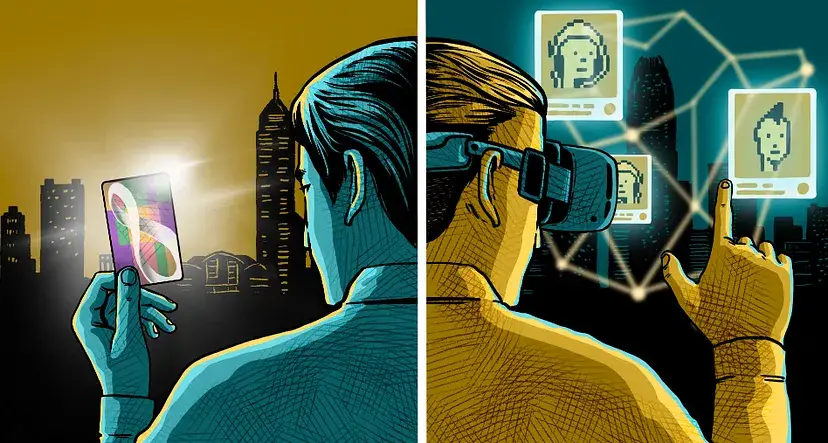

“The process of entrepreneurship and innovation is to train and cultivate people.”
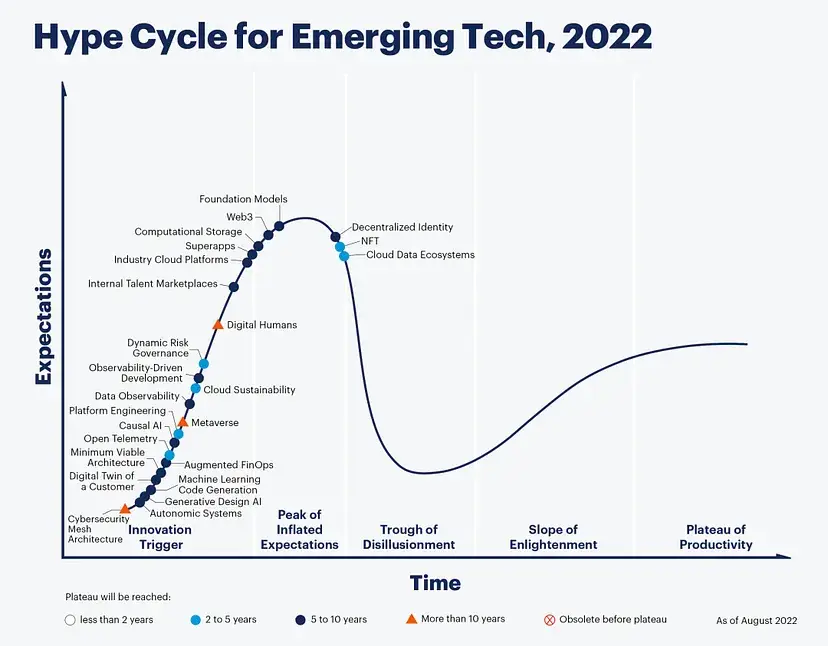
Moonshot Commons:
What aspects are the projects at HKUST mainly focused on?
Professor Chen:
Our students’ determination regarding the direction of the projects is more in sync with the market trend. After all, the industry at large is in its infancy. Take our Crypto-Fintech Lab as an example, many projects are related to DeFi, but currently, there may be more related to the Metaverse. I am now more optimistic about the combination of AI and Web3. The development of AI is growing very fast now, and many large-scale models have been produced in the past year. Some even say that 2022 is the first year of AIGC (AI Generated Content). Therefore, I think it will be more practical to combine the cutting-edge development of AI with blockchain and the Metaverse.
Moonshot Commons:
Can you share how you analyze the development ability of a team in the Crypto-Fintech Lab?
Professor Chen:
We have a process and focus on whether an idea can be implemented. A good idea may be important, but there is no such thing as a perfect idea in the world, so there is a process to measure whether it is good.
In the beginning, everyone basically goes along with the idea, modifying the project while working on it. We would ask the professors in the Crypto-Fintech Lab or experienced students to evaluate the business logic and value of the project and then decide on the direction of modifications. At the same time, we would also invite experienced fund professionals to give project feedback.
After going through this process, we usually end up with a better project. In fact, there are many failed projects, but the essence of entrepreneurship is that there are successes and failures. The team itself is particularly important for entrepreneurial success. If the team is relatively strong, even if the idea is not very good initially, it is still likely to become a good project after it is gradually refined. Sometimes even if the initial idea is not very good, it can be adjusted midway so that the whole team can continue to innovate — a good team can make the project embrace a process of continuous sublimation.
On the contrary, if the team is not very strong and qualified but happens to capture a good idea, the project becomes risky. For example, winning is still difficult if you give someone who is not good at fighting a good weapon. Yet, if the person is good at fighting, with strong skills and will, even if he initially acquires a not-so-good weapon, this person can continue to improve and thus win.
The quality of people is very important, and young people nowadays are very malleable.
I am very pleased to witness some of our students in the Crypto-Fintech Lab, in a limited time, from young people with no experience to entrepreneurs with rich industry experience. The process of entrepreneurship and innovation is to train and cultivate people. Overall, between good ideas and personnel quality, the latter may still be more important.

Moonshot Commons:
We noticed that HKUST launched MetaHKUST in July this year, a Twin Campuses Project that combines virtual and reality. What new changes and opportunities will Web3 bring to future higher education institutions?
Professor Chen:
Yes, this is a large-scale project, and many professors including me have participated. The school also attaches great importance to the MetaHKUST project. However, ongoing projects will always need to adapt to changing conditions. Therefore, this project cannot only rely on one individual, department, or division; it must require the whole school's efforts. The construction of such a good and advanced high-tech campus in line with Web3 and the metaverse is seen as a future of social and industrial development.
There can be a powerful synergy if students are actively involved. Because we have two campuses (Hong Kong and Guangzhou), students from different backgrounds may have less interaction. If there is such a metaverse campus, students with different identities and backgrounds can get together. If this community can be expanded, it can form a very diverse utopia. Everyone can work towards the same goal in the same environment. This will have a very positive impact on the student experience and higher education as a whole.
I now know that many other schools are doing similar things. A few days ago, the Singapore Institute of Technology (SIT) also had a virtual campus to be established. SIT wants to join forces with us to see if we can cooperate. This is very meaningful.
Moonshot Commons:
We are very grateful for your time and insights. Finally, do you have any suggestions and messages for the current or future young generation who aim to focus on entrepreneurship in Web3?
Professor Chen:
I have seen so many projects, including but not limited to our Crypto-Fintech Lab projects, successful and aborted. I have also gotten in touch with many young people and different ideas. Some are firmly opposed to starting a business, some strongly dislike Web3 and blockchain, and some have a positive attitude and go all out.
For young people, trying to start a business is an interesting experience. When you are older, you can tell the younger generations that you had such an experience when you were young. If you’re successful, that’s great. If you are unsuccessful, it is also a valuable life experience. It might be a pity if you don’t try new things just because you refuse to accept them. Trying to innovate and start a business is still meaningful, although not everyone thinks so.
Different stages of life can take different shapes, so there is no need to force an outcome. If you try bravely when you are young — just like falling in love when you are young, no matter how it turns out, the process can always make you grow. Don’t be afraid that you won’t be able to get married, so you don’t fall in love. This is a very wrong idea.
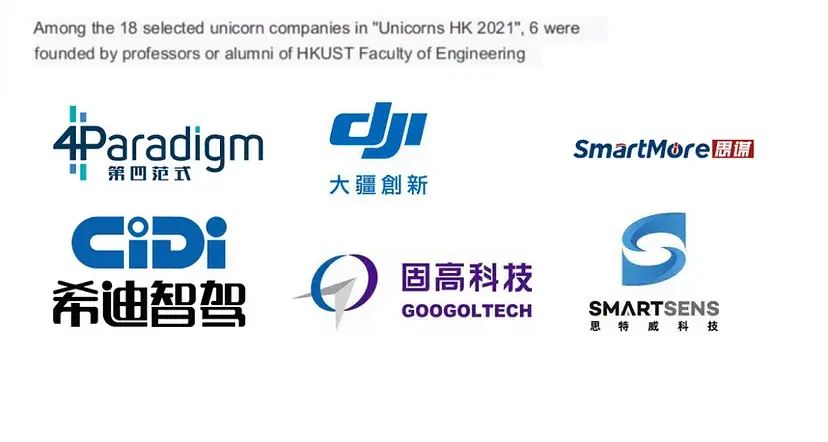
Source: HKUST.
